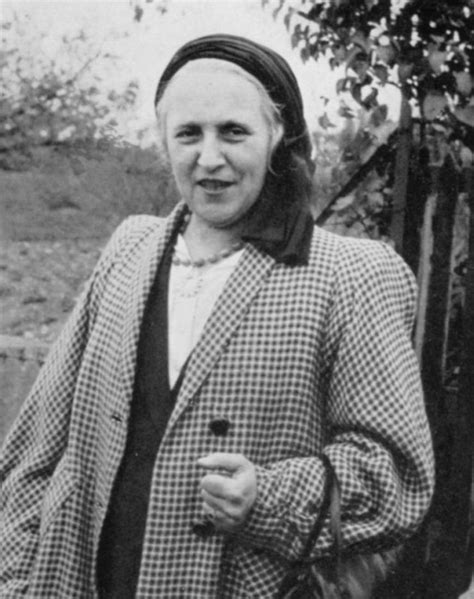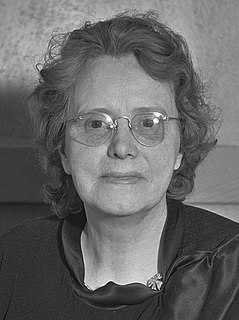A Quote by Murray Bookchin
I detest violence. I have a tremendous respect not only for human life but also for the animal life that I have to live with, and I believe that our destiny as human beings is to become nature-conscious as well as self-conscious, living in loving relationship and in balance and in harmony, not only with one another, but with the entire natural world.
Quote Topics
Related Quotes
And people who believe in God think God has put human beings on earth because they think human beings are the best animal, but human beings are just an animal and they will evolve into another animal, and that animal will be cleverer and it will put human beings into a zoo, like we put chimpanzees and gorillas into a zoo. Or human beings will all catch a disease and die out or they will make too much pollution and kill themselves, and then there will only be insects in the world and they will be the best animal.
I think, questions about what it means to respect nature become very important because just as in human society, for example, part of what it is for me to live a good life as a human being in a human society is to have respect for others around me. Now, that respect, to some extent, can be thought of as being grounded in the rights and interest of others but it also has to do with the stance that I take in the world and what it is that provides meaning and significance in my own life and I think there are similar ideas of respect for nature that apply as well.
What is difficult to understand is that without conscious effort, nothing is possible. Conscious effort is related to higher nature. My lower nature alone cannot lead me to consciousness. It is blind. But when I wake up and I feel that I belong to a higher world, this is only part of conscious effort. I become truly conscious only when I open to all my possibilities, higher and lower. There is value only in conscious effort.
It is only in the giving of ourselves to others that we truly live — only with the meeting of our minds — thine and mine — do we become conscious of the divine spark each of us shares — only in sharing in our daily contacts, one with another, in our mutual hopes and fears do we find real peace. The human contribution is the essential ingredient.
Self-respect is often mistaken for arrogance when in reality it is the opposite. When we can recognize all our good qualities as well as our faults with neutrality, we can start to appreciate ourselves as we would a dear friend and experience the comfortable inner glow of respect. To embrace the journey towards our full potential we need to become our own loving teacher and coach. Spurring ourselves on to become better human beings we develop true regard for ourselves and our life will become sacred.
My view is that consciousness, the seat of "personalness," is the ultimate reality, and is also scientifically impenetrable. In other words, there is no scientific test one can postulate that would definitively prove its existence in another entity. We assume that other biological human persons, at least those who are at least acting conscious, are indeed conscious. But this too is an assumption, and this shared human consensus breaks down when we go beyond human experience (e.g., the debate on animal consciousness, and by extension animal rights).
There is only one thing in your life YOU can be sure of. That one thing is this moment, now. The last moment has gone forever. The next moment has not come. YOU can become fully conscious only when you are living in the moment. To begin to live in the moment you have to know it exists and understand it. To understand it you have to observe it in relation to yourself and in relation to life. When you understand it, when you become conscious, you will see it is all that exists. To see this is to glimpse reality.
All human beings have failings, all human beings have needs and temptations and stresses. Men and women who live together through long years get to know one another's failings; but they also come to know what is worthy of respect and admiration in those they live with and in themselves. If at the end one can say, This man used to the limit the powers that God granted him; he was worthy of love and respect and of the sacrifices of many people, made in order that he might achieve what he deemed to be his task, then that life has been lived well and there are no regrets.
I believe that the basic nature of human beings is gentle and compassionate. It is therefore in our own interest to encourage that nature, to make it live within us, to leave room for it to develop. If on the contrary we use violence, it is as if we voluntarily obstruct the positive side of human nature and prevent its evolution.
Human life is an extension of the principles of nature, and human civilization is a venture extrapolated out of human natures: man and his natural potential are the root of the entire human domain. The great task of all philosophizing is to become competent to interpret and steer the potential developmental forces in human natures and in the human condition, both of which are prodigiously fatalistic.
No matter what part of the world we come from, we are all basically the same human beings. We all seek happiness and try to avoid suffering. We have the same basic human needs and concerns. All of us human beings want freedom and the right to determine our own destiny as individuals and as peoples. That is human nature.
































